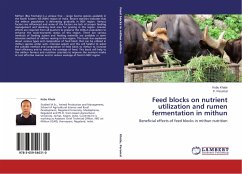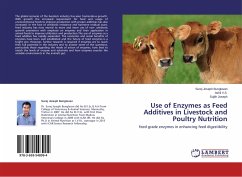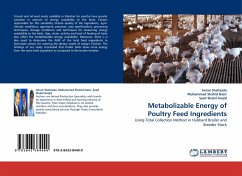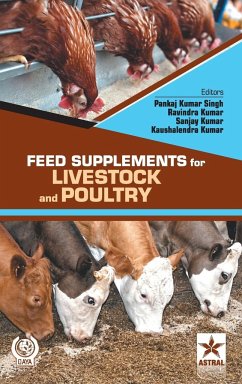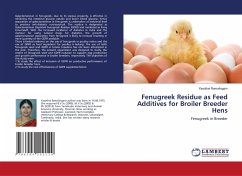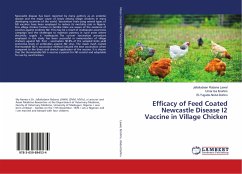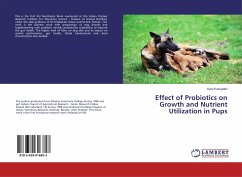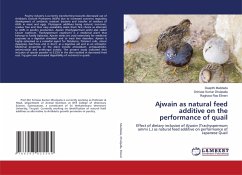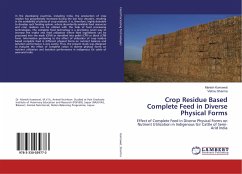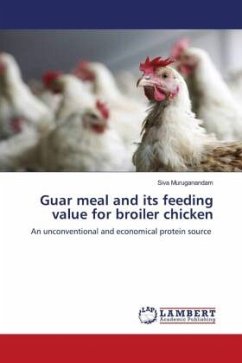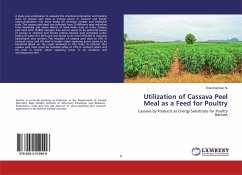
Utilization of Cassava Peel Meal as a Feed for Poultry
Cassava by Products as Energy Substitute for Poultry Rations
Versandkostenfrei!
Versandfertig in 6-10 Tagen
36,99 €
inkl. MwSt.

PAYBACK Punkte
18 °P sammeln!
A study was undertaken to evaluate the chemical composition and feeding value of cassava peel meal as energy source in cockerel and broiler rations.Evaluation was done based on chemical analysis and biological trials. The cassava peel meal was collected from 20 different sago industries from Namakkal and Salem district of Tamil Nadu state of India. Cassava peel meal with 75.80% nitrogen free extract seems to be potential source of energy in cockerel and broiler rations. Cassava peel processed under boiling in water (for 48 hours) was found to be more effective in reducing hydrocyanic acid cont...
A study was undertaken to evaluate the chemical composition and feeding value of cassava peel meal as energy source in cockerel and broiler rations.Evaluation was done based on chemical analysis and biological trials. The cassava peel meal was collected from 20 different sago industries from Namakkal and Salem district of Tamil Nadu state of India. Cassava peel meal with 75.80% nitrogen free extract seems to be potential source of energy in cockerel and broiler rations. Cassava peel processed under boiling in water (for 48 hours) was found to be more effective in reducing hydrocyanic acid content. The inclusion of cassava peel meal at 10% in cockerel ration and 5% level in broiler ration replacing jowar seems to be beneficial. Based on the result obtained in this study its inferred that cassava peel meal could be included safely at 10% in cockerel ration and 5% level in broiler ration replacing jowar in an isocaloric and isonitrogenous diet.



